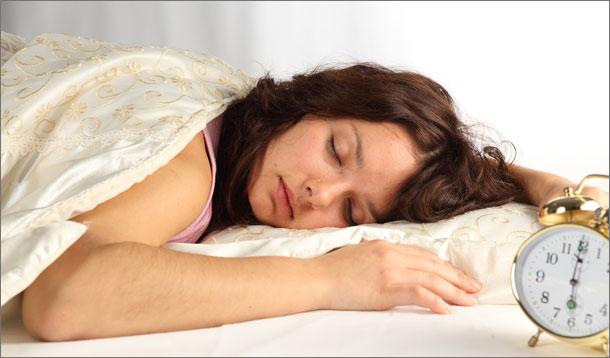
Hoping to take your belt down a notch or two in time for the great summer reveal? The secret to losing a few nagging pounds might be in your bed. Literally.
Research presented at the American Heart Association's Epidemiology and Prevention/Nutrition, Physical Activity and Metabolism 2012 Scientific Sessions suggests that lack of sleep may lead to weight gain, even obesity.
"We tested whether lack of sleep altered the levels of the hormones leptin and ghrelin, increased the amount of food people ate, and affected energy burned through activity," said Dr. Virend Somers, lead author of the study and professor of medicine and cardiovascular disease at the Mayo Clinic, Rochester, Minn..
Of the small sample of healthy young men and women, half slept 'normally' while the other slept for only two-thirds their normal time. All participants ate whatever they liked during the trials. Those who were sleep-deprived group—having slept an hour and 20 minutes less than the control group each day—ended up consuming an average of 549 additional calories each day.
There was no change in activity level between the two groups, despite one group consuming more calories. The study suggests that the lack of sleep caused an increase in leptin and a decrease in ghrelin.
"Sleep deprivation is a growing problem, with 28 percent of adults now reporting that they get six or fewer hours of sleep per night," said Dr. Andrew D. Calvin, study author, cardiology fellow, and assistant professor of medicine at the Mayo Clinic.
Do you tend to eat more (or more absentmindedly) when you're tired? How much sleep do you get per night on average? Here are some tips on how to get more. Your waistline will thank you.